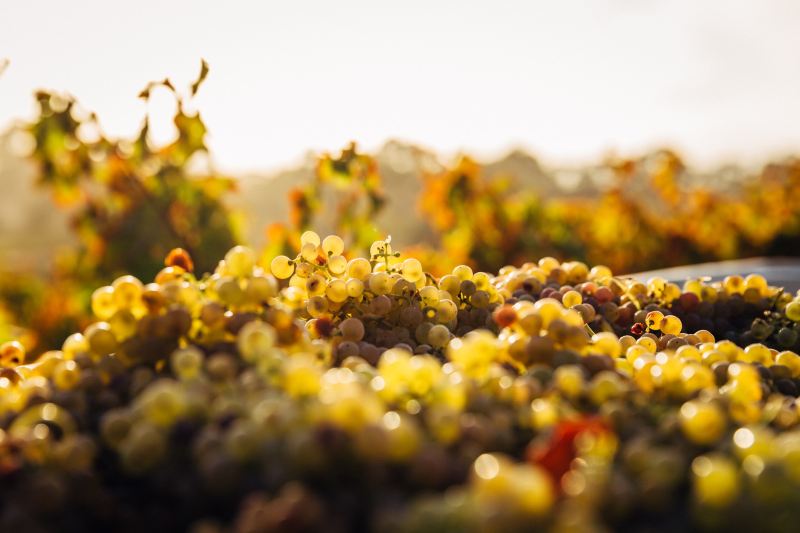
If you ask me what my favorite movie is, my default answer is The Sound of Music. And while that answer is true, I hate giving it. Not because I’m ashamed of my pure-as-freshly fallen-snow love for Julie Andrews or unabashed lust for a young Christopher Plummer (Mother, may I?), but because giving any single straight answer to that question is terribly frustrating. If I’m only allowed one answer to a question whose very purpose is to reveal the personality of the person answering, it’s just not enough.
How can I then also express the sides of myself who can quote every line of The Princess Bride or Dumb and Dumber? There are just too many movies to adore, and all for very different reasons. Wines are exactly the same way. There are simply too many to have just one favorite because there isn’t a default or a one-size-fits-all option. Much like movies, the wines we enjoy heavily depend on the season, the activity, the time of day, the mood, and a million other factors. But if there absolutely must be one favorite, one and only one answer, Riesling is my Sound of Music.

Is Riesling a light or heavy wine?
Riesling is an acidic wine that comes from the grape of the same name. While most Rieslings are white wines — varying in color from pale greenish yellow to a more golden hue — there are a few red Rieslings, which come from red Riesling grapes, a mutation of the white variety. Red Rieslings are rare, but absolutely delicious if you can get your hands on a bottle.
There are also several beautiful sparkling Riesling options on the market, which have become tremendously popular in recent years. Depending on the climate where the grapes are grown and produced, these wines can be dry, sweet, or anywhere in between. Rieslings are typically light-bodied beverages and very easy (sometimes too easy) to drink.

What does Riesling wine taste like?
Rieslings are very elegantly aromatic with a high-acid structure. They often contain fruity notes of citrus, nectarine, apple, and pear and floral touches of jasmine. Rieslings are most often zesty and bright, with a possible hint of effervescence. Due to their high acidity, Riesling’s tartness can be quite piquant, sometimes comparable to that of lemonade.

Where does Riesling come from?
While grown and produced all over the world, Riesling is a traditionally German wine, originally grown in the Rhine River region, which runs throughout Europe and also includes France, Austria, and Switzerland. And while 20% of all Riesling wine production happens in Germany, it is very successfully made in Australia, New Zealand, Washington, Oregon, New York, and throughout California’s wine regions.

Is Riesling sweeter than chardonnay? How about moscato?
While Rieslings all tend to have similarly mild, fruity notes, the varietal isn’t generally considered sweet. Its fruit notes are more brightly tart, not jammy and heavy. Rieslings are medium-bodied wines and fall somewhere between mildly sweet and dry (meaning, not sweet at all).
Chardonnay is only mildly acidic compared to Riesling and doesn’t have as many bright touches of fruit. Chardonnay can also have more robust, earthy flavors, such as oak, and is usually drier than sweet.
Moscato, on the other hand, is very sweet. One of the sweetest wine types on the shelf, moscato is a perfect option for new wine drinkers with its friendlier, fruity notes. Like Riesling, moscato will often taste of peach and citrus, but with the addition of tropical fruits, making it much more traditionally sweet.

Does Riesling have a high alcohol content?
As with all wines, Riesling’s alcohol content is greatly dependent on its environment. Wines grown in cool climates have far lower alcohol content than those grown in warmer locations. Therefore, German Rieslings tend to have a lower ABV than those from California, for example. As a general rule, Rieslings typically fall around 12% ABV, but that range can vary considerably.

Which foods pair best with Riesling wine?
Because of the sharpness of Rieslings, the wine has an unparalleled ability to cut through spice. Therefore, many Asian dishes, Indian curries, or spicy tacos all pair beautifully with Riesling. This white wine also pairs perfectly with raw and mild seafood. Oysters, sushi, tartars, crab, and lobster will be elevated to new levels of deliciousness with a crisp, citrusy Riesling. Its crispness also complements many fattier flavors like bacon and creamy cheeses, so get out that fondue pot and enjoy the two together.



